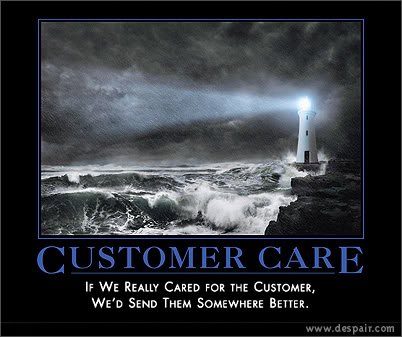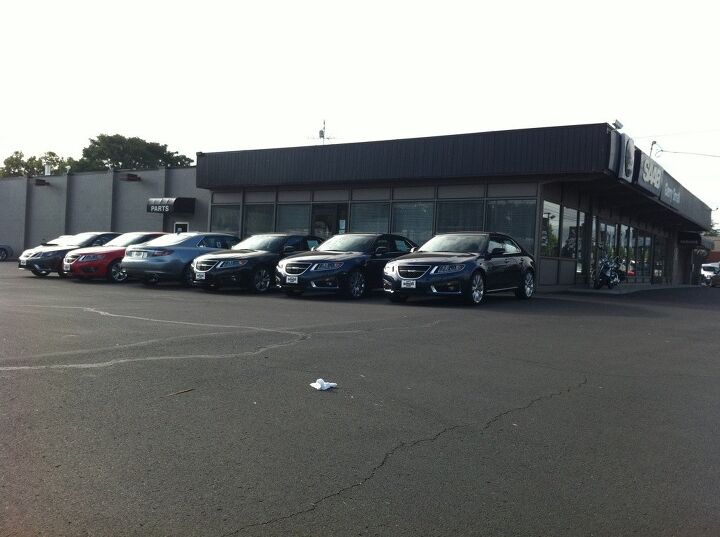#DealerNews
UAW: The War On Transplants Is Still On, Dealers On The Front Lines
With a tough negotiating session with its traditional employers now complete, the United Auto Workers are turning their focus back to the year’s primary goal: organizing the transplant factories. 2011 was supposed to be the year in which the UAW took down “at least one” foreign-owned auto plant, with the union’s boss even going as far as to say
If we don’t organize the transnationals, I don’t think there is a long-term future for the UAW
But as we found, the UAW is not welcome in the South, where most of the transplant factories are found. And with Honda, Hyundai, Toyota and VW all rejecting the UAW’s advances in some form or another, the union’s options are fairly limited. So instead of taking on the factories directly, the UAW is bringing back a questionable tactic from the days when it was misleadingly bashing Toyota for “abandoning” the NUMMI factory: they are taking the fight to dealerships.
Chevy Hopes To Build A Magic Kingdom In Southern California
In hopes of escaping Chevrolet’s recent past as what he calls a “truck funded, Midwestern and Southern” business, GM’s Mark Reuss is leading a revamp of Chevy’s Southern California retail environment in order to establish a stronger presence in that key market. Now that Chevy offers higher-quality, more-efficient cars that can compete in the SoCal market, Reuss and company say it’s time to focus on the retail experience. The GM North American boss tells the LA Times
We are really going to have a go at California. This is not some half-baked plan. We will be putting a serious amount of money into this.
Serious money is good… but money alone won’t change the culture of a car dealer that’s always played second fiddle to import brands. So, how will GM tackle cultural shortcomings at its SoCal dealerships? Let’s just say that, for all the apparent seriousness with which this issue is being tackled, GM has come up with a Mickey Mouse plan… literally.
Chevy-Dealing Congressman: "There Is No Market" For The Volt
In addition to being a representative from Pennsylvania, Republican Mike Kelly is also a Chevrolet dealer whose family has sold Chevys since 1953. But in recent hearings on government fuel economy ratings, he laid into his brand’s green halo car, the Chevy Volt with surprising zeal. Or, not-so-surprising, when you realize that he decided to run for congress in the wake of the bailout-era dealer cull.
I’m a Chevrolet dealer… we have a Chevy Volt on the lot, it’s been there now for four weeks. We’ve had one person come in to look at it, just to see what it actually looks like… Here’s a car that costs $45,763. I can stock that car for probably a year and then have to sell it at some ridiculous price. By the way, I just received some additional information from Chevrolet: in addition to the $7,500 [federal] tax credit, Pennsylvania is going to throw another $3,500 to anybody foolish enough to buy one of these cars, somehow giving them $11,000 of taxpayer money to buy this Volt.
When you look at this, it makes absolutely no sense. I can stock a Chevy Cruze, which is about a $17,500 car and turns every 30 to 40 days out of inventory… or I can have a Volt, which never turns and creates nothing for me on the lot except interest costs… So a lot of these things that we’re seeing going on have a tremendous economic impact on people who are being asked to stock them and sell them. There is no market for this car. I do have some friends who have sold them, and they’re mostly to people who have an academic interest in it, or municipalities who are asking to buy these cars.
With dealers like that, who needs competitors? Seriously, Kelly even says he fired the guy who ordered a Volt for his dealership… which he then counts against the Volt’s job creation record. Hit the jump for the rest of his quote.
Avenger, Grand Caravan Marked For Death. Is The Dodge Brand On Its Way Out?
With Chrysler, Dodge, Ram and Jeep brands consolidating into single dealerships as part of Chrysler’s “Project Genesis” dealer overhaul, CEO Sergio Marchionne is voting overlapping models off the island, starting with Dodge’s Grand Caravan and Avenger. Automotive New [sub] quotes Marchionne saying
We cannot have the same type of vehicle in the showroom because the consumer is not stupid. We’re not going to create the confusion and conflict in the showroom.
Dodge’s minivan (which outsells its Chrysler T&C sibling, albeit at lower margins) and midsized sedan will be replaced in 2013 by a single crossover, based on the next-generation minivan platform. A compact crossover, based on a Fiat platform, will replace the Avenger “after 2014.” Oh, and the subcompact is definitely off. In other words, you can pretty much forget the product plans unveiled two years ago at Chrysler’s five year business plan.
Customer Care: Whose Problem Is It Anyway?
Three years ago I suggested that Detroit win back car buyers by doing something no one seemed to be doing: provide customer care deserving of the name. In a similar vein, Steve Lang recently asked readers whether manufacturers or the government should do more when a model commonly suffers from an expensive problem. Well, according to an article in Automotive News this week GM has strongly encouraged its dealers to pick up the tab on more out-of-warranty repairs to reward and create loyalty.
According to the article, the bottleneck hasn’t been GM—the customer care money has been there, but dealers have been too tight with it because of fears that GM would punish them if they spent it. Why did dealers have these fears in the first place? The article doesn’t say. The important thing isn’t how these fears came to exist, but that they’re currently unwarranted. One dealer calls the new “open pocketbook” approach to keeping customers happy a “seismic shift.” Problem solved?
Quote Of The Day: Car Dealer Cliche Edition
Nobody in the auto retail business can possibly be unaware of the horrible reputation that car dealers have earned over decades of shady dealing. Heck, the internet has even created a pseudo-meme for the entire business, in the form of the passed-around image you see at the top of this post. But one industry’s horrendous reputation can be another another industry’s opportunity, and Kevin Hurst thought he had come up with a goldmine. By creating software that guides dealers through compliance with a number of federal regulations, he figured he could leverage the stereotype of the sleazy car dealer to get potential clients interested in demonstrating their commitment to walking the straight and narrow path. It’s a brilliant idea, and the kind of move that would show that market self-regulation and government regulation can work together to serve consumers. Unfortunately, Hurst made a fatal error of calculation: he assumed car dealers care about fixing their reputation and living up to national standards.
US Fiat Dealers Losing Patience As Alfa Endures Another Delay
You want the truth? The Alfa Romeo brand sounds like it’s pretty much in chaos at this point. Since Fiat first got a toehold on the North American continent, we’ve heard so many variations of the Alfa-Romeo invasion plans, each one succeeded by a new and different set of plans, that I don’t know what to believe anymore.
Back in 2010, the brand was talking about a 2012 launch and 85k annual units in the US by 2014, with the initial launch lead by the Giulia midsized sedan. Then, earlier this year, the Giulia was delayed until “mid-2013” as CEO Sergio Marchionne “was not pleased with proposals he has seen from Alfa’s creative team in Turin.” Then, in June we got a “product plan” PowerPoint slide that was supposed to guide the new new Alfa invasion plan, which had the bulk of new products arriving in the US in 2013. Then, in July we heard that the Giulia was bumped to “the end of 2013 at the earliest” and the plans were changing again. Now, Alfa CEO Harald Wester tells Automotive News [sub] that there won’t be a single Alfa in the US until 2013, and that the bulk won’t arrive until 2014. Oh, and the rear-drive flagship that Alfa denied earlier this year is back on for “after 2014.”
And the worst part of this latest change in plans? They forgot to tell the dealers…
This Is What A Year's Supply Of Saabs Looks Like
Portland’s 82nd Avenue is one of those streets that exists in nearly every American city. Unofficially demarcating Portland proper (“the right side of the tracks”) from the extensive working-class suburbs that bleed into Gresham (“the wrong side of the tracks”), “Shady-Second” is home to a vast strip of wall-to-wall buy-here-pay-here lots, used-car hustlers, and small repair shops that line both sides of the road from Sandy Boulevard all the way down to Division. Like every other used-car strip in every other town in America, it’s where folks go when they need a car and don’t have much money to spend. Unlike most other low-cost car Meccas, however, 82nd Avenue is also home to Oregon’s last remaining Saab dealership. And it’s something of a symbol of the hell that Saab dealers are going through right now.
Auto Dealers and Mechanics Top Consumer Concerns Of 2010
Auto dealers are often said to be the face of the industry… and if that’s the case, the Consumer Federation of America may have shed some insight into why so many Americans opposed a bailout of the industry. In a survey of 31 state, county and municipal consumer protection agencies from 18 states in 2010 [ PDF here], the CFA found that auto dealers, suppliers and service garages were the number one source of consumer complaints for problems such as
Misrepresentations in advertising or sales of new and used cars, lemons, faulty repairs, leasing and towing disputes
As if car dealers didn’t have reputation problems already…
Will Online New Car Sales Ever Take Off? Should They?
The internet has been a boon for car buyers in a million ways, but for new car marketers it’s been a decidedly mixed bag. GM’s California-only experiment selling new cars over eBay was quickly abandoned, after generating more embarrassment than sales. Now, another high-ish profile online new car marketing gag has flopped, as Autoweek reports that Groupon’s car debut is going nowhere:
Only four consumers agreed to pay $200 for a $500 discount voucher on a new-vehicle purchase at LaFontaine Buick-GMC-Cadillac in Highland, Mich. Groupon and LaFontaine had set 10 as the minimum required for the vouchers to be issued.
For companies like Tesla, who hope to do without traditional franchised dealers altogether ( Chrysler may harbor similar desires), the internet is next great frontier in new car sales… but the eBay and Groupon failures are troubling signs for that dream.
What's A Mercury Franchise Worth?
Ford hasn’t built a Mercury in six months and 98 percent of its erstwhile dealers have signed termination agreements with the parent company, but the remaining 31 dealership owners are digging in their heels for a fight. Automotive News [sub] reports that these Mercury dealers recently spent huge amounts building or renovating their Lincoln/Mercury stores, and that Ford’s termination offers are embarrassingly tiny in comparison.
For example, the owner of Francis Scott Key L-M Inc. in Frederick, Md. claims to have spent $5.5m on a dealership expansion which was completed in 2007, but only received a termination offer of $181,026 from Ford. Liberty Lincoln-Mercury in Clifton, N.J spent $7.7m upgrading its facilities in 2004, only to receive a $733,575 termination offer from Ford. So far, AN counts four dealers who are suing Ford in federal court, and an undisclosed number have filed complaints with their state DMV. Ford, meanwhile, is trying to engage the holdouts in mediation, and though some have settled others are reporting bad experiences. Meanwhile, there’s another problem that underlines the the entire dispute: can a standalone Lincoln dealership even survive?
The Truth About Dealer Holdback
One of the greatest things about the internet is its ability to disseminate information that levels the playing field in relationships that have long been defined by asymmetrical information. Our buddies at TrueCar are tackling one such informational imbalance by posting its dealer holdback calculation for every brand on sale in the US. They note
Dealer Invoice is generally the amount the dealer pays the manufacturer for the vehicle. Because Dealer Holdback is paid to the dealer after the vehicle is sold, it represents an additional profit center for the dealers that is not immediately available to consumers. This is one reason why some dealers are able to sell some vehicles below Invoice and still make a profit.
The more you know!
Car Salesmen Pose As Nutjobs, Defraud Government
Kent, WA, resident Johnny George owned and ran a used-car lot. Paul George worked as a sales and financing manager at Pacific Auto Zone. For some 30 years, both convinced authorities that they are mentally insane.
GM's Orphaned Brand Buyers Have Moved On
How many former Saturn buyers do you figure have come back to GM for their next car? What about consumers who last purchased a Pontiac? How about HUMMER? Since we’re not bound to a strict inverted pyramid around here, why don’t you think of an answer (in terms of percentage of customers retained) for each brand and then hit the jump to see how close you were.
Why Saab Doesn't Actually Need To Restart Production
OK, so it’s a somewhat facetious headline: as an auto manufacturer, Saab either builds and sells cars or it disappears. But in the aftermath of Saab CEO Victor Muller’s pledge that “We will definitely ensure that this [production stoppage] will not happen again,” Saab’s most recent shutdown sent shockwaves of concern through the Saab community. After all, Saab’s official line is that “we knew this would happen,” a position that’s more than a little at odds with Muller’s now-broken promise. And though the just-signed Youngman deal could mean more cash with which to get production at Trolhättan back up and running, there’s a bigger question that remains unanswered: why restart production at all?


















Recent Comments